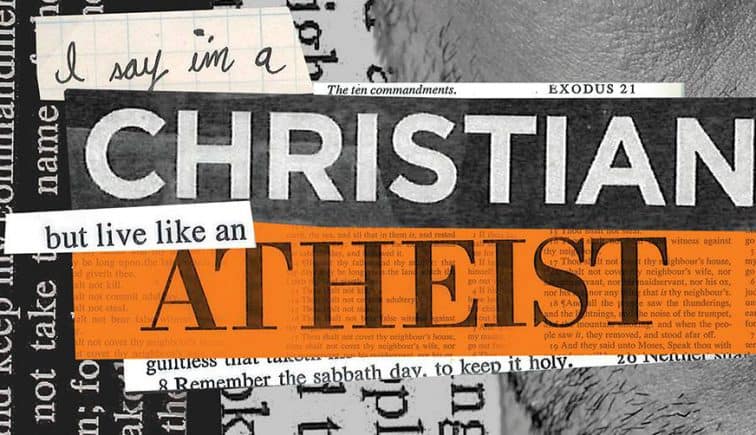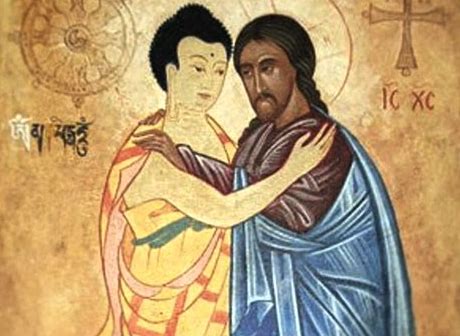
Most of us – almost all of us, I would dare say – think that we know what it means to be Orthodox; and of course, what it means to be non-Orthodox or even un-Orthodox. What we don’t know, though, and most importantly what we don’t even think of, is that in order for someone to be sure of their own Orthodoxy they need to see, compare and judge it in the light of radical Orthodoxy. Because it is one thing to be Orthodox and quite another to aspire to be radically Orthodox. The former is a form of membership, commitment or self-determination, whereas the latter refers to an affective belonging, a transcendental yearning or a relentless quest.
Perhaps questions like the following can help us – indirectly, yet unmistakably – understand the difference better: If the Orthodox all over the world are estimated around 220 million, how many do you think are the radically Orthodox? Can anyone really be radically Orthodox? Is this radicalism, so to speak, some kind of fundamentalist absolutism? To start with, I would say that radical Orthodoxy is not Orthodox fundamentalism; it should not be confused with Orthodoxism; and by no means is it identical to this or that version of Orthodoxy – conservative, progressive, reformist or liberal. Simply put, radical Orthodoxy is the postulatum and at the same time the desideratum of Orthodoxy; what is supposed to bring out of an Orthodox their most ‘Orthodox’ aspirations… and many a time these can be unexpectedly, surprisingly and paradoxically non-Orthodox or even un-Orthodox!
Relative Truths vs Absolute Truth
It is a kind of truism in theological circles to say that Orthodoxy is not a religion, but then it is rather commonplace to observe that everything Orthodox takes place in a religious manner. If Orthodoxy is not a religion, then it should not be about organisational/institutional structures, hierarchical/power relationships, group/collective membership, doctrinal/ideological conformism, and so forth. But it is! And sometimes it is more that, than anything else… Consequently, a question can be raised: Are Orthodox theologians deluding themselves? To be sure, there are many an Orthodox theologian who delude themselves, yet the assertion that Orthodoxy is not a religion betrays a certain invaluable truth – and an imperceptible one, for that matter. This truth is about the Truth, in the sense that Orthodoxy, that is, religious Orthodoxy, is truthful to the extent that its truths – both theoretical and practical – reflect the absence and request the presence of the Person-Truth, namely, Jesus Christ. In other words, the value of religious Orthodoxy – and this is the only value that it has – lies in its preserving of a calling; in the fact that at the end of the day it calls each and every one of the faithful to see beyond relative truths and witness the absolute Truth. These relative truths, i.e., truths-in-relation, are no monopoly of religious Orthodoxy, on the one hand, and they cannot pre-empt the manifestation of the Truth-in-Itself, on the other; they are just signposts that the faithful erect as they go, creating their way in the making insofar as they are called by and towards the Beloved.
Moderate Orthodoxy vs Radical Orthodoxy
Religious Orthodoxy, which is what more or less one understands by the phrase ‘the Orthodox Church’, constitutes a relatively uninterrupted spatiotemporal perpetuation of the truths that Jesus inspired through His historical ministry; and as such, that is, as a 2,000-year continuum, it is the most adequate embodied witness that we have of what it means to be of, with and for Jesus. It is thanks to this witness, however, that the faithful members of His historicity are called upon to commit themselves to the witnessing of His Kingdom, something that determines their entire be(com)ing. To put it otherwise, the ecclesiality of the Orthodox Church is not some thing, but an event, an occurrence, a becoming, that breaks both in the Church and in the World insofar as the faithful – those who want to call themselves Orthodox – bear witness to His way of Life as the only means to anticipate His Creation-to-Come. Therefore, the Orthodox faithful are supposed to embody – through the aesthetics of their everyday living – what the Church is all about within the World. They are not supposed to secure the organisational, hierarchical or collective prerogatives of the Orthodox Church, but to disseminate and diffuse the ecclesiality of their Church-being throughout the World, so that the latter may participate in the Ecclesia as an eschatological phenomenon. This simply means that the primary and basic intentionality of Orthodox consciousness is not moderate given Orthodoxy, but radical aspired Orthodoxy.
The Responsibility of the Orthodox Church
Radical Orthodoxy can be envisioned in the non-Orthodox, as well as the un-Orthodox; that the World, along with the Church, is the topos where radical Orthodoxy breaks in – although in different ways. What I am trying to say is that the boundaries of the Orthodox Church do not restrain the ecclesiality of radical Orthodoxy. The latter can emerge in the various manifestations of the World as the Other, that is, in other Christian traditions, in other religions, in the secular in general, even in the anti-religious, the atheistic or the anti-Orthodox. The boundaries of the Church are there to determine those who have received the calling to witness the coming and the preparation of the Heavenly Kingdom; they are not there to determine who will be part of the Kingdom or where the materials of the witnessing will be found. Non-Orthodox can and will be part of the Kingdom, while the materials of the witnessing will time and again be un-Orthodox. It is a blessing of course to be part of the Orthodox Church, but most of all it is a responsibility and a burden; it secures no salvation or privileges, although it can be justified precisely for serving the purpose of the salvation of the world. If what the Orthodox faithful do in their liturgical or everyday lives does not transform the lives of those who are not Orthodox, it simply comes to naught. If the Orthodox are just preserving, perpetuating and promoting the boundaries of the Church ‘what credit is that to [them]? Even [the non-Orthodox] do that’ (Luk. 6: 33)!

More Orthodox Than Orthodox
Whereas religious Orthodoxy invests in faith at the expense of reason, radical Orthodoxy flowers in the interstices between these two and benefits from both. Whereas religious Orthodoxy declares the greatness of the Creator, radical Orthodoxy coincides with the celebration of the Created. Whereas religious Orthodoxy tends to pronounce the profanity of the World, radical Orthodoxy brings out the sacredness of everything that humanity is capable of. Whereas religious Orthodoxy is more or less static and entrenched, radical Orthodoxy comes and goes, reveals itself and withdraws, blends in and transforms everything. Whereas religious Orthodoxy succumbs to nihilism, radical Orthodoxy welcomes it as a challenge to render life meaningful. Radical Orthodoxy may be just around the corner waiting for us to discover it – disguised in the person of the non-Orthodox or the un-Orthodox. There is an Ecclesia to be unveiled in other religions, in our secular practices, values and attitudes, in the non-Orthodox Christians, even in ‘the enemies of the faith’.
Are we going to enclose ourselves within the Church, because we believe that Orthodoxy is our secure ticket to heaven? Can we imagine – just imagine, that’s what it takes – that salvation is to be pursued exactly where it is risked? The time has come for global Orthodoxy to decide whether it is just another part of the global machine, assigned a specific worldly role – whatever the accompanying spiritual rhetoric may be – or if it is a violent wind of the Spirit of Truth that penetrates everything everywhere, bringing to life everyone by sacrificing identities and identifications.
Orthodoxy seems to be the final idol that we should get rid of if we intend to become radically Orthodox, more Orthodox than Orthodox, for the sake of His Love…
ABOUT | INSIGHTS INTO GLOBAL ORTHODOXY with Dr Vassilis Adrahtas
"Insights into Global Orthodoxy" is a weekly column that features opinion articles that on the one hand capture the pulse of global Orthodoxy from the perspective of local sensitivities, needs and/or limitations, and on the other hand delve into the local pragmatics and significance of Orthodoxy in light of global trends and prerogatives.
Dr Vassilis Adrahtas holds a PhD in Studies in Religion (USyd) and a PhD in the Sociology of Religion (Panteion. He has taught at several universities in Australia and overseas. Since 2015 he has been teaching ancient Greek Religion and Myth at the University of New South Wales and Islamic Studies at Western Sydney University. He has published ten books. He has extensive experience in the print media as editor-in-chief and columnist, and for a while, he worked as a radio producer. He lives in Sydney, Australia, his birthplace.

